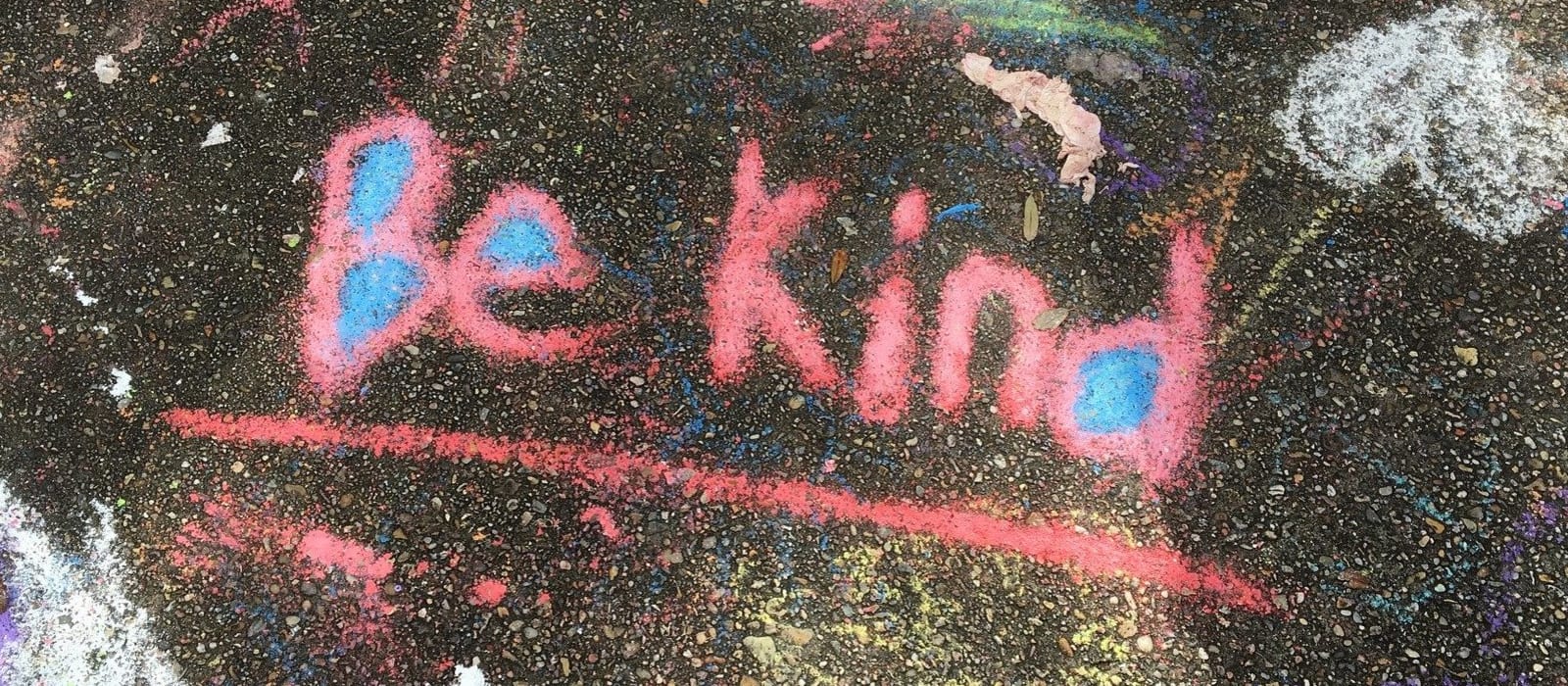The Case For Being Kind
4 MIN READ
Confucius tells us that kindness is one of the five things that under all circumstances constitutes perfect virtue . Whilst Aristotle , in Book II of ” Rhetoric “, believes kindness to be “helpfulness towards someone in need, not in return for anything, nor for the advantage of the helper himself, but for that of the person helped”. For millennia philosophers, psychologists, poets, sociologists and theologians have explored the questions of what it means to be kind and why kindness is important to ourselves and others. These questions have never been more pertinent.
Each year the Mental Health Foundation hosts Mental Health Awareness Week. In 2020 Mental Health Awareness Week takes place from 18-24 May 2020. In response to the COVID-19 pandemic, this year’s theme is ‘kindness’; celebrating why acts of kindness are important to our mental health and exploring the kind of society we want to shape as we emerge from the coronavirus pandemic.
Mark Rowland, Chief Executive of the Mental Health Foundation, said: “Kindness unlocks our shared humanity and is central for our mental health. It has the potential to bring us together with benefits for everyone, particularly at times of great stress. One thing we have seen all over the world is that kindness is prevailing in uncertain times, helping people to connect and communities to cope with the impact of the coronavirus pandemic.”
What is kindness?
It is a benevolent and helpful action intentionally directed towards another person, it is motivated by the desire to help another and not to gain explicit reward or to avoid explicit punishment- Pam (2013) in the Psychology Dictionary online.
Kindness is an action, done for another (s), that is as a result of concern and consideration. It is associated with being ethical, virtuous and the performer as having a pleasant disposition. The value of kindness is recognised in many religions and schools of thought and is actively encouraged through daily practices such as asking people how they are, holding the door open for others and paying another person a compliment.
The benefits being kind
There is an obvious benefit from receiving kindness, but the benefits of being kind are increasingly well documented.
- It makes us feel better: Research shows that after seven days of performing kind acts happiness increased in those that delivered them (Rowland and Curry 2018).
- It helps our physical health: In her 2018 article ‘ Does it pay to be kind?’ Sarah Tashjiian finds that kindness has a number of benefits that are supported by scientific evidence, including kindness leading to reductions in risks for disease and our neural networks that are linked to reward fire when we carry out acts of kindness and when we see others being kind.Dr . Kelli Harding suggests that assistant clinical professor of psychiatry at Columbia University Irving Medical Center in New York told the Today programme in 2019 that “Medical care only accounts for 10-20% of our overall health and the other 80-90% is somewhat our genes and what’s happening in the rest of our lives outside clinical care,”.
- It multiplies: Kindness is contagious. One study into kindness found that those who performed kind acts felt increased happiness, in life and job satisfaction, and a decrease in feelings of depression ( Chancellor et el 2018 ). They also found that people that benefited from the kind acts “passed it on”, carrying out kind acts for other people around them.
Kindness During The COVID-19 Pandemic
During the COVID-19 pandemic kindness seems to be in abundance, with 100s of mutual aid support schemes being set up across the country and huge donations to charity, including Captain Tom Moore’s fundraising for NHS Charities Together , which currently stands at £32 million.
There have also been individual acts of kindness from footballer Gary Neville offering his hotels to NHS staff, Joe Wicks teaching Britain’s children PE and chef Jonny Burnett delivering meals for those in need. These are high profile acts of giving, but there have also been stories of people helping each other; neighbours checking in on each other, people interacting positively when waiting to get into supermarkets and being considerate of others whilst taking their daily exercise.
The measures taken to stop the spread of COVID-19 have radically altered how we live. When these start to be lifted we have an opportunity to continue these acts of kindness.
The Mental Health Foundation is encouraging a discussion of the kind of society we want as we emerge from the coronavirus pandemic. The Stuart Low Trust is embracing this opportunity to gain feedback from its participants and volunteers. Please tell us about the kind of society you want and the help that you will need after the coronavirus pandemic by answering our survey: https://stuartlowtrust.typeform.com/to/BFpisk
Written by
Lorna Lewis, Operations and Communications Manager- Stuart Low Trust




